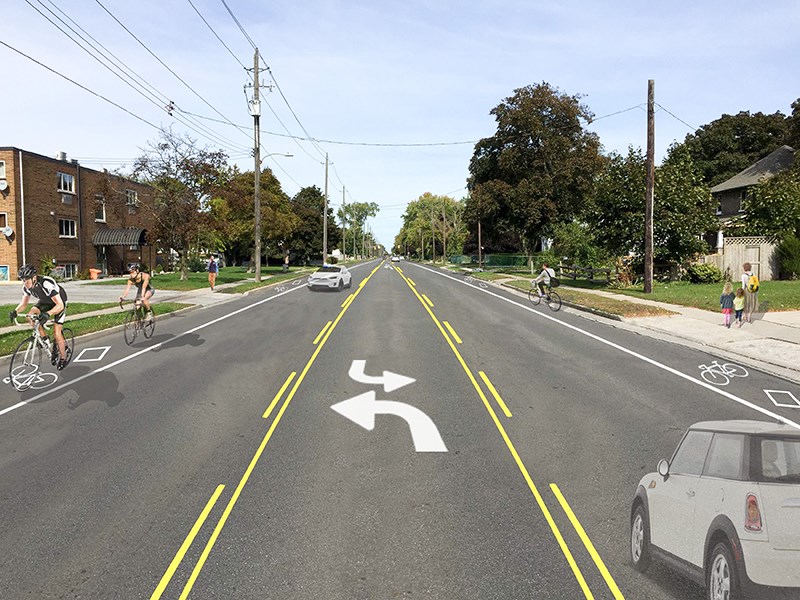Journal Staff
City Hall has approved a plan to reduce vehicle traffic on Colborne Road from four to three lanes to create a safer north-south travel corridor for cyclists.
The big change will see bike lanes painted on both sides of Colborne Road between the Highway 402 overpass and Cathcart Boulevard, with all on-street parking eliminated.
Bike lanes will also extend north of Cathcart to Lakeshore, with parking removed on the west side only.
This new Colborne Road biking corridor will also link up with Canatara Park to the west via Cathcart, and extend south of the highway along Capel and Russell streets as far as Maxwell Street, with some parking modifications along the way.
City staff advocated for the vehicle “road diet,” saying experience elsewhere has shown it reduces accidents and has little impact on traffic flow.
Public consultations were about 70% in favour of the move.
“It’s about moving toward a point of critical mass, where ridership and the infrastructure supports cycling to the point where it becomes an accepted and respected mode of transportation,” cyclist Rachel Grondin told council.
“This is a great proposal that should not be dismissed.”
But others wanted the plan ditched to protect on-street parking and road safety.
“We have always enjoyed riding our bikes up and down (Cathcart) Boulevard, simply because of the space it provides away from traffic,” said Donald Carey, who cited an 80-name petition opposing lanes on Cathcart.
“Creating dedicated cycling lanes would only bring cyclists closer to the traffic, making it a less safe experience.”
In voting 8-1 in support of the project, councillors acknowledged Sarnia has been slow to recognize the recreational and tourism potential of cycling.
“I have cycled cities all across our country,” said Coun. Bev MacDougall “We are so far behind.”
The changes will cost about $250,000, with 80% of it covered by a provincial grant the city received last year.
